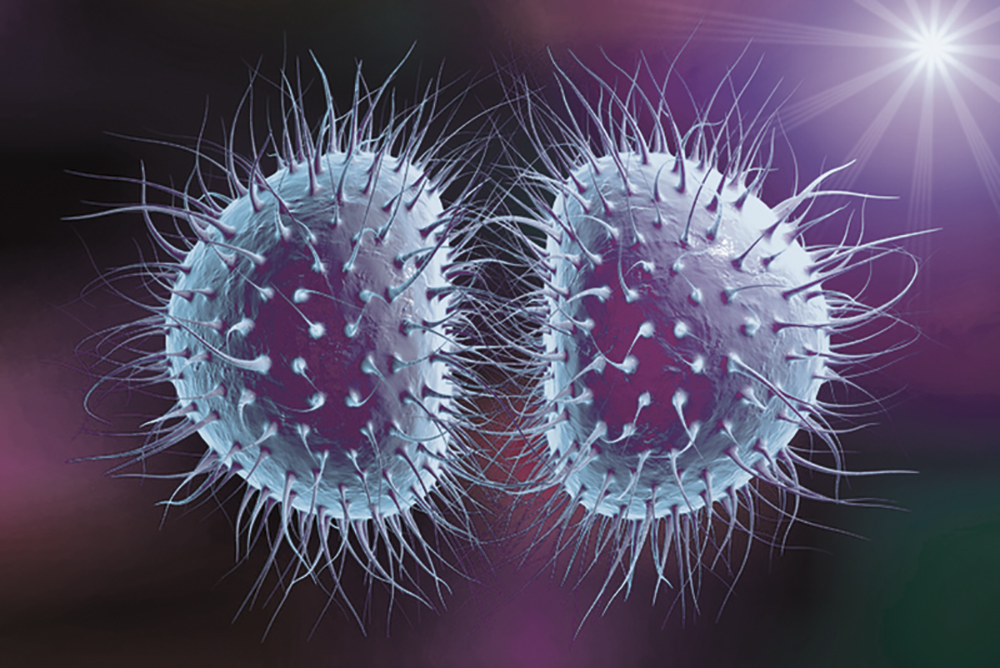Gonorrhoea
WHAT IS GONORRHOEA?
Gonorrhoea is a sexually transmissible infection (STI) which is caused by a bacteria called neisseria gonorrhoea. It can infect the urethra, throat, cervix, anus, and (rarely) the eyes.
HOW DO YOU CATCH GONORRHOEA?
Gonorrhoea is passed on during oral, vaginal or anal sex without condoms.
WHAT ARE THE SYMPTOMS?
Symptoms will depend on where the infection is. Up to 80% of women* will have no symptoms and some men* (about 10-15%) will have no symptoms. Symptoms are uncommon with a throat or anal infection.
WHEN SYMPTOMS ARE PRESENT IN MEN THEY CAN INCLUDE:
- Thick, yellow or white discharge from the penis.
- Pain or discomfort passing urine.
- Redness around the opening of the penis.
- Anal discharge and discomfort.
WHEN SYMPTOMS ARE PRESENT IN WOMEN THEY CAN INCLUDE:
- Irregular vaginal bleeding (between periods or after sex).
- Pelvic pain, especially during sex.
- Unusual vaginal discharge.
- Discomfort passing urine.
- Anal discharge and discomfort.
If gonorrhoea is untreated in women it can cause Pelvic Inflammatory Disease (PID) which is an infection of the uterus and fallopian tubes. PID may lead to infertility and chronic pelvic pain.
HOW LONG AFTER I HAVE BEEN INFECTED CAN SYMPTOMS DEVELOP?
The majority of men develop symptoms of gonorrhoea within 1-3 days. If women do develop any symptoms, they usually do so within 10 days.
HOW CAN YOU TEST FOR GONORRHOEA?
Gonorrhoea can be tested for very easily, with a urine test for men (or a swab from the urethra if symptoms are present) and a urine test or vaginal swab for women. Swabs can also be taken from the anus and the throat if you have had oral or anal sex.
Gonorrhoea can occur with other STIs such as chlamydia, and tests for these can also be done at the same time. The tests can usually detect gonorrhoea within 4 days of being infected.
WHEN SHOULD YOU HAVE A TEST FOR GONORRHOEA?
You should have a test for gonorrhoea if:
- You have ever had unprotected sex;
- You have had a new sexual partner since your last test;
- You have a sexual partner who has been diagnosed as having gonorrhoea or another STI;
- You have a sexual partner has had sex with a person who could be infected with gonorrhoea;
- You have been diagnosed with another STI
- You have any signs or symptoms
HOW IS GONORRHOEA TREATED?
Gonorrhoea is treated with antibiotics. This is usually an injection of an antibiotic called ceftriaxone, together with an oral antibiotic called azithromycin. You will need to avoid sex completely for seven days after treatment. You also need to avoid sex with a partner for seven days after they have been treated. This is to avoid re-infection.
There is some evidence that gonorrhoea may be developing resistance to the antibiotics commonly used to treat it. This makes preventing infection and regular testing even more important.
SHOULD I TELL ANY SEXUAL PARTNERS?
Yes it is very important to let your sexual partner/s in the last three months know so that they can be tested and treated. This should include anyone that you have had oral, vaginal, or anal sex with, even if you used a condom, as well anyone you have had any genital to genital contact with. There are several ways to let partners know: this is usually best done directly, in person, with a phone call, or with a text message.
There are also websites that you can use to send an anonymous email or text such as letthemknow.org.au (for anyone) or thedramadownunder.info (for gay men or men who have sex with men).
HOW CAN I AVOID CATCHING GONORRHOEA?
Using condoms every time you have vaginal, anal, or oral sex is the best way to prevent gonorrhoea. Get tested for sexually transmissible infections regularly and make sure that any new partners have been tested.
If you have been diagnosed and treated for gonorrhoea notifying partners is also very important in order to prevent re-infection. If you meet partners online or at sex on premises venues the risk of infection is higher so always make sure you use a condom.
WHERE TO GO FOR INFO AND TESTING
SHFPACT Clinic
- CALL 02 6247 3077
- MAKE AN APPOINTMENT ONLINE
Canberra Sexual Health Centre at the Canberra Hospital
- CALL 02 6244 2184
- ACT SEXUAL HEALTH
Your GP or local Health Centre
REMINDER
If you are diagnosed with a sexually transmissible infection (STI), it is important to be checked for other STIs such as chlamydia. Your partners should also be notified, checked and treated if required. Be sure to have another test after treatment to make sure it has been cleared up.
GONORRHOEA INFORMATION BROCHURE PDF
*Terms: The terms men and women are used in this brochure in order to differentiate symptoms relating to anatomical differences. Although we use the word ‘women’ to describe individuals whose sex assigned at birth was female, and ‘men’ to describe individuals whose sex assigned at birth was male, we respectfully acknowledge that people with either sex assignments at birth can identify as female or male, as well as non-binary, or as both genders, or neither gender.
Last Updated April 2020. References: Melbourne Sexual Health Clinic: mshc.org.au • Australian STI Management Guidelines for use in Primary Care: sti.guidelines.org.au • Family Planning NSW: fpnsw.org.au/health-information/stis/gonorrhoea


